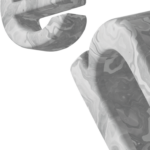

Set up your shop
Create my project

Opening a Shoe Shop in 10 Easy Steps
11 December 2023
Shoes are both a necessity and a source of joy, for some. They protect us, help us run our best lap, or just give us that boost of confidence we need. If you’ve been considering opening a shoe store yourself, here you can find some steps to follow to step your foot in the right direction.
Summary
- Opening a Shoe Shop: Benefits and Challenges
- Conduct a Market Study
- Find the Right Niche
- Develop Your Business Plan
- Find a Good Location
- Make Your Shoe Shop Legal
- Create a Business Bank Account
- Acquire Business Insurance
- Get the Right Resources
- Hire Staff for Your Shoe Shop
- Find a Wholesaler
- Bottom Line
- FAQ
Opening a Shoe Shop: Benefits and Challenges
Opening a shoe store is one of the most enjoyable and fulfilling ways to own a business while satisfying an ever-increasing demand. While there are some prerequisites you will need to meet in order to get off the ground, such as acquiring the necessary finances and ensuring that there is a need in the market that you can fill, before you get to that stage, it’s helpful to create a list of the pros and cons. Below, you’ll find some general pros and cons, but only you know your personal situation, so take the time to list your own.
Pros of Opening a Shop
- Work at your own pace / Be your own boss
- Low to moderate start-up costs
- Creative control of your business
- Simple yet scalable business model
- Few regulations and compliance requirements
Cons of Opening a Shop
- Space requirement for stocking different models/sizes
- Unsold stock could lead to sizable losses
- As with any new venture, it comes with certain financial risks
Conduct a Market Study
Conducting research into the market to see whether or not there is room for your new business to exist is the first thing you need to do to open a shoe store.
It is essential for anyone who is thinking about opening a shop to conduct in-depth market research that is precisely geared to the area in which they would like to begin their business. This involves keeping an eye on the most important market trends, as well as the expectations of local and regional customers and finding the right target audience or niche that is being underserved.
While market insights provided by Statista estimate the UK footwear market to exceed £14.7b today, the level of competition in your area remains one of the key factors to consider when deciding if and where to open your shoe store.
Find the Right Niche
When looking for a place for your business in the wider market, it’s a good idea to find a problem that isn’t being addressed, and solve it. In terms of clients, this would be an underserved market segment, or in other words, a niche in the market. A niche is a narrow and easily addressable subset of a broader audience.
Defining the niche you wish to target and the appropriate customers, and providing shoes tailored to meet their requirements, is vital.
Use Google Trends and enter terms defining your unique selling proposition. For instance, “canvas skater shoes” could be one of those keywords.
Before you set up shop, investigate the enquiries, demographics, and locations that are relevant to this topic. Find out who is shopping for products comparable to what you are looking to offer at your shoe store and target them as potential customers.
Develop Your Business Plan
A document that outlines the company’s objectives, as well as the strategies, procedures, and timetables for achieving those objectives, is known as a business plan. It is a guide that will assist you in organising and managing your own business as well as identifying potential sticking points and target market.
Not every business owner will create a traditional business plan, but it is a proven path to success for the most driven entrepreneurs. Include everything from the structure of the company and its product range to the financial estimates and requests for finance in your business plan.
For an entrepreneur to succeed, a detailed plan is necessary. You will be able to discover certain unknowns and map out the specifics of your organisation with its assistance. The following are some significant factors to take into consideration:
- What are the start-up and ongoing costs?
- Who is your target audience?
- How much can you charge customers?
- What is the wholesale price of your stock?
- What is your required profit margin and break-even point?
- How will you market your business?
Find a Good Location
Find a suitable location for your store. Determine the kinds of shoes you want to sell and the customers you want to attract before you look for a spot to sell them. For instance, if you want to sell shoes for children, you should look for a site with many families and schools in the surrounding area. Once you have located a few unoccupied stores that pique your interest, the next step is determining your day-to-day operations and calculating the remodelling and/or expansion required to make the premises appropriate. A wide area in the back of the store that is well-lit and simple to navigate is essential for the successful operation of a shoe store. In addition, you need a front area or “showroom” where clients can look at the various models of shoes that you sell.
Make Your Shoe Shop Legal
After you have located a suitable location for your new shoe shop, the next step is determining the appropriate legal structure for the business. Whether you decide to run your company as a sole trader or as a limited company, the choice can have a large impact when it comes to taxes or liability in the event of a dissolution.
Choosing the appropriate legal form for your store is an important step because it will affect the following:
- The amount of tax your business will have to pay
- Your taxation at a personal level
- Your responsibility for the company’s debts in the event of bankruptcy
Your choices and circumstances will determine your best option (e.g. the number of partners involved in your venture, the amount of start-up capital at your disposal, etc.).
Because there are many potential legal structures, it is important to thoroughly consider them before making a choice.
Create a Business Bank Account
Ensure that anything associated with your legal corporation has a unique business account. If you are operating a sole-trader, this isn’t a legal requirement, but it is generally a good practice, especially if you’re looking to change your business status in the future. As a limited company, you are legally required to keep a separate business account.
If you require a company credit or bank card, the payment modalities and interest works the same as a personal account. However, there are certain additional monthly or transaction fees that you may be required to pay, so it’s a good idea to shop around before settling on a bank for your shoe store.
Acquire Business Insurance
Your company must have insurance to legally and safely conduct business. If your company suffers a loss covered by insurance, your firm’s financial security will be protected.
Many insurance plans are available, each tailored to a company’s specific needs. Most small businesses require only general liability insurance. However, it may not be the right fit for you. Take the time to talk with a professional advisor.
Get the Right Resources
If you wish to launch a shoe business, your first step should be locating wholesale footwear suppliers. Of course, there are a wide range of wholesalers that you can individually shop on- and off-line to find the best prices. But if you’re looking to simplify your search with reliable, independent, and driven merchants from all across Europe all on a single platform, visit Ankorstore today. Our mission is to support independent retailers and businesses to create a virtuous ecosystem.
Remember, you’ll most likely make most of your money from selling shoes and other footwear. However, you should also examine opportunities to cross-sell products. You can’t talk about shoes without mentioning socks, so why not tie this into your business plan from the start? A shoe store can also provide:
- Shoe care products, like whitener, polish, and waterproofing
- Shoe accessories, including shoehorns, polishing sponges and odour prevention
- Sunglasses, costume jewellery and hats
- Belts, handbags, briefcases, wallets, saddlery and other leather goods
- Laces, insoles and even DIY repair kits
- Stockings or tights.
Tip: At first, you should limit the number of items you have in stock. When your store has been operating for some time, you will have a better understanding of the requirements of your clientele, and you will be able to modify your product offering accordingly.
Hire Staff for Your Shoe Shop
This is more of a long-term goal for when your business starts gaining traction. A lot of small businesses fail because they take on too much debt or don’t fully grasp their cash flow situation. There may be some time where you will have to build your business from the ground up without any staff, which is why it’s so important to join a community of like-minded entrepreneurs who are actively engaged in seeing each other succeed.
However, it should be a part of your business plan to decide at what point after you reach profitability that you will want to start hiring extra personnel. Just remember, on top of their salaries, you’ll need to pay extra taxes and insurances. The benefit of the work provided by the additional personnel must necessarily off-set the additional costs or you’ll find yourself in a worse place than when you started!
Find a Wholesaler
A wholesaler is the intermediary that will connect you, as an independent retailer, to the manufacturers whose shoes you sell in your shop. For the manufacturer, it can be complicated to exchange with numerous small retailers, maintain a large database of clients and handle the logistics. They will therefore offer preferential prices to a wholesaler who will handle these tasks and pass on some of the savings to retailers.
If you’re looking for a wholesaler who specialises in the European market, Ankorstore works with independent brands and small retailers to create a virtuous circle that benefits both parties. You can select independent brands based on the country of manufacture, the materials used, and the shared values, whether that means using sustainable or cruelty free practices.
Bottom Line
A good mentor is one of the most valuable assets a new business owner can have at their disposal. Take advantage of the valuable business resources offered by the Ankorstart programme. You will find help with developing your business and get the assistance you require. We’re here to lend a helping hand.
FAQ
What services can my shoe store offer to make extra money?
Anything from socks to shoe accessories, shoe care supplies, and other items contributes to the revenue generated by shoe stores. Of course, you can offer customisation or repair services as well.
How much does it cost to open a shop in the UK?
The cost varies depending on a number of factors, from overhead costs including rent and purchasing stock, to any business licences you may need, of which the price is set by local authorities. All of this should be researched as part of your business plan. Reach out to your local town hall or city council for any specifics.
How long will it take to be profitable?
A number of factors must be considered, from fixed and variable costs to the profit margin per unit sold and the number of units you sell per month. Read this article if you want to learn more about your break-even point.
How do I set the prices for the shoes?
When purchasing many products, the manufacturer will provide the manufacturer’s suggested retail price (MSRP). However, this is a suggestion and not a requirement. You’ll need to take into account the wholesale price you pay, your preferred profit margin, the extra cost associated with holding onto unsold stock, and everything from the cost of rent to electricity. You can lower or raise the price slightly over time to see the effect it has on your sales numbers.
Related posts "Create my project"

Here are a few pieces of advice to help you understand which are the main steps to follow while deciding the layout of your store.

Are you planning on starting a business in retail? Before you dive in, it’s crucial to conduct market research. This article will walk you through the process of why and how to conduct market research effectively, ensuring your retail business idea is built on a solid foundation of market insights and data-driven decisions.

For entrepreneurs opening a shop, designing a compelling brand identity is crucial to stand out from the competition.
This article explores how thoughtful product selection, marketing strategy and customer experience can boost sales and strengthen brand image.

We’ll take a deep dive into market research, taking a look at primary and secondary sources and how you, as a small retail business owner can conduct your own market research, as well as why you should!


